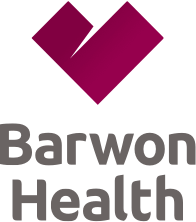Social Work
We work with people to achieve the best possible levels of personal and social wellbeing in the context of illness, disability, treatment, rehabilitation, and recovery.
About us
The Barwon Health Social Work department provides assistance to people and their families or carers with respect to a wide range of personal concerns and practical needs which may arise during treatment and as they plan for the future.
Social Workers provide up-to-date information, education and support about a wide variety of topics including welfare services, housing, accommodation, respite, residential care, legal services, income and financial support, counselling and emotional support, and many other community agencies.
Our Social Work services are available to people of all ages and their families and/or carers in the hospital, emergency department, rehabilitation centres, community health centres, aged care facilities and at home.
Our services
Experiencing problems and changes with your health can be a very difficult and stressful time for patients and their families. There are many concerns and problems which can arise for patients as they undertake treatment and plan for the future.
Social work services provide assistance to patients and their families across the health service with respect to the wide range of personal concerns and practical needs which may arise during treatment. Social work services are available to current Barwon Health patients and their families/carers.
Social workers assist patients and families with:
- Understanding the hospital and the services provided by the hospital
- Support in adjusting to illness/ injury
- Counselling and emotional support
- Information, support & advocacy for patients, carers/family
- Assistance with decision-making and information about alternate accommodation & housing and respite care options
- Information about and referral to community services that are available at home such as personal/attendant care, in-home respite, and home care
- Planning for discharge from our services
- Information about Centrelink, TAC, WorkCover payments and services
Service and discharge planning
Social workers work closely with other staff to plan and arrange supports that may be required during or after your time in hospital, period of treatment and/or rehabilitation.
In some instances, the social worker may arrange information and planning/family meetings to provide information about treatment and service planning.
Counselling
Social workers provide counselling and support for patients and family/ carers in relation to issues associated to illness, accidents, disability and hospital care. Where necessary and appropriate, referrals for ongoing counselling are made to community agencies.
Family meetings/information and planning meetings
Social workers can co-ordinate and facilitate meetings that provide an opportunity for patient/family/carer participation in the treatment and care planning process. These meetings also provide an opportunity for questions about your diagnosis, treatment and/or rehabilitation plan. The aim is to ensure the quality of care and better patient outcomes, a smooth transition to home and the community.
Community service information and access
Social workers provide up-to-date information and support about a wide variety of topics and services including housing/accommodation, legal and income support/financial services. Where necessary, referrals are made to specialist community services to facilitate access to required services and entitlements.
Rural and interstate patients/carers are assisted to access available temporary accommodation and transport entitlements.
Supported accommodation
Whenever possible, social workers assist and support the patient to return home after their treatment in hospital. However, in those instances when discharge home is not possible due to the level of ongoing support required by the patient, supported accommodation may be required. Social workers assist patients and their families with decision-making regards this.
Education
Social workers have an active role in conjunction with the other staff to provide information and education to patients, their family/carers and community service providers regarding the effects of illness, treatments, hospitalisation and services. Education occurs on both a one-to-one basis and via group services.
Research and quality improvement initiatives
Barwon Health's social work team is committed to ongoing research and quality standards of practice. Staff monitor their practice as part of a continuing quality improvement program to ensure best patient care. Staff participate in Barwon Health quality committees aimed at improving patient care and outcomes.
Social workers participate in and present papers, posters, seminars and innovative programs at international, national and state conferences.
Qualifications
All social workers have completed a specialist university degree of at least four years and are eligible for membership of the Australian Association of Social Workers (AASW). Many social workers have completed Masters of Social Work degrees and/or other relevant post-graduate qualifications. All social workers are involved in ongoing professional education.
Social work is committed to five fundamental values:
- Human dignity and individual worth
- Social justice
- Service to humanity
- Integrity
- Competence
Our practice principles are derived from these values and are the basis of the Code of Ethics of the Australian Association of Social Workers.
Last Modified: Thursday, 21 December 2023
Contact
Social workers at based at
- University Hospitial Geelong
- McKellar Centre
- Communuity Health Centres
03 4215 0777

Social work assessment
Social workers are trained to undertake comprehensive assessments. This helps other staff understand your individual support needs and concerns. These assessments identify any personal, family or home-related issues or concerns that can impact upon your treatment or ability to return home. Social workers also seek to identify patients who are 'at risk' of not being able to return to their previous level of independence and usual lifestyle. This ensures the arrangement of any necessary supports or alternative care arrangements.